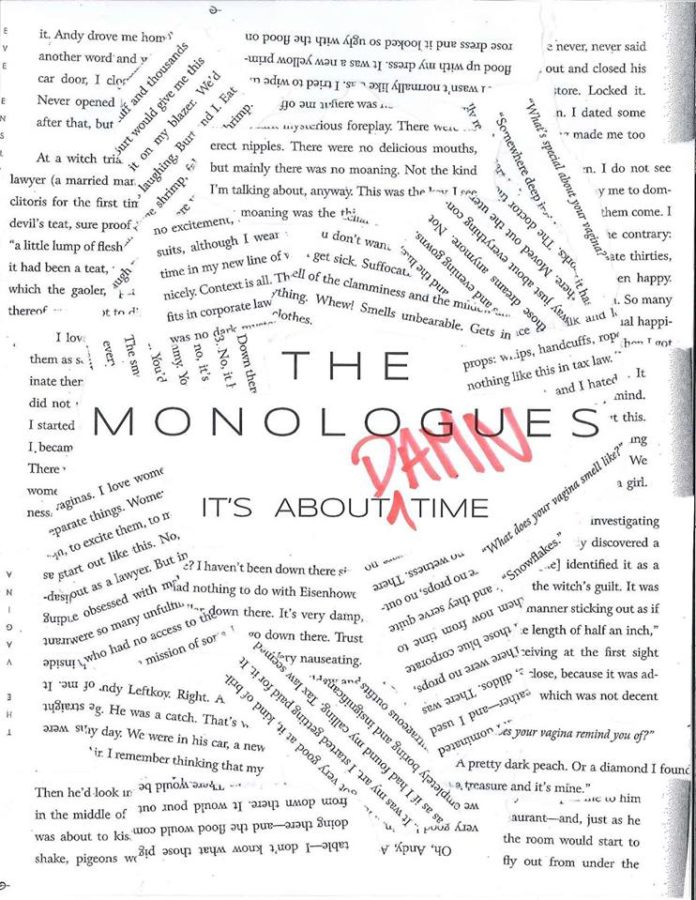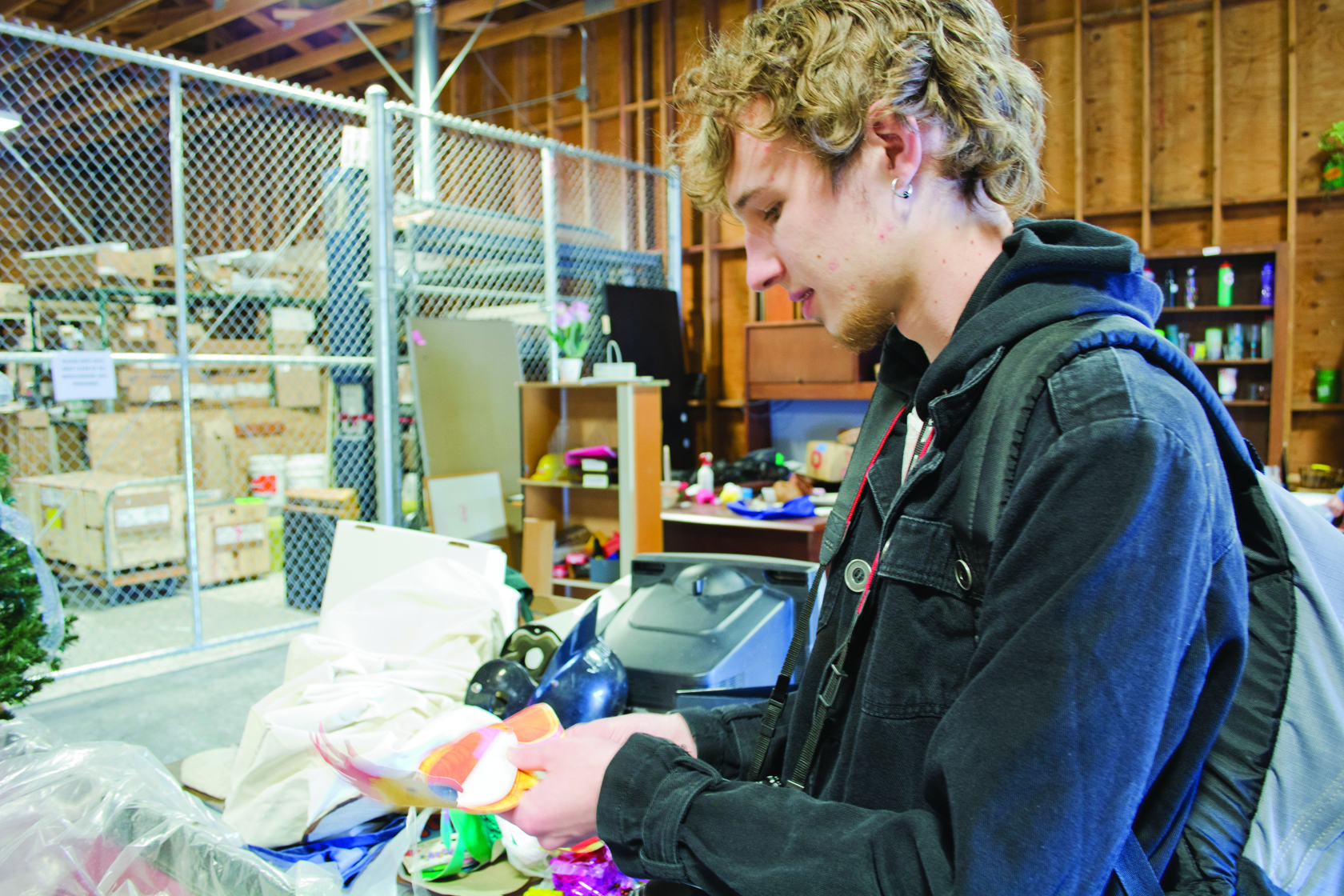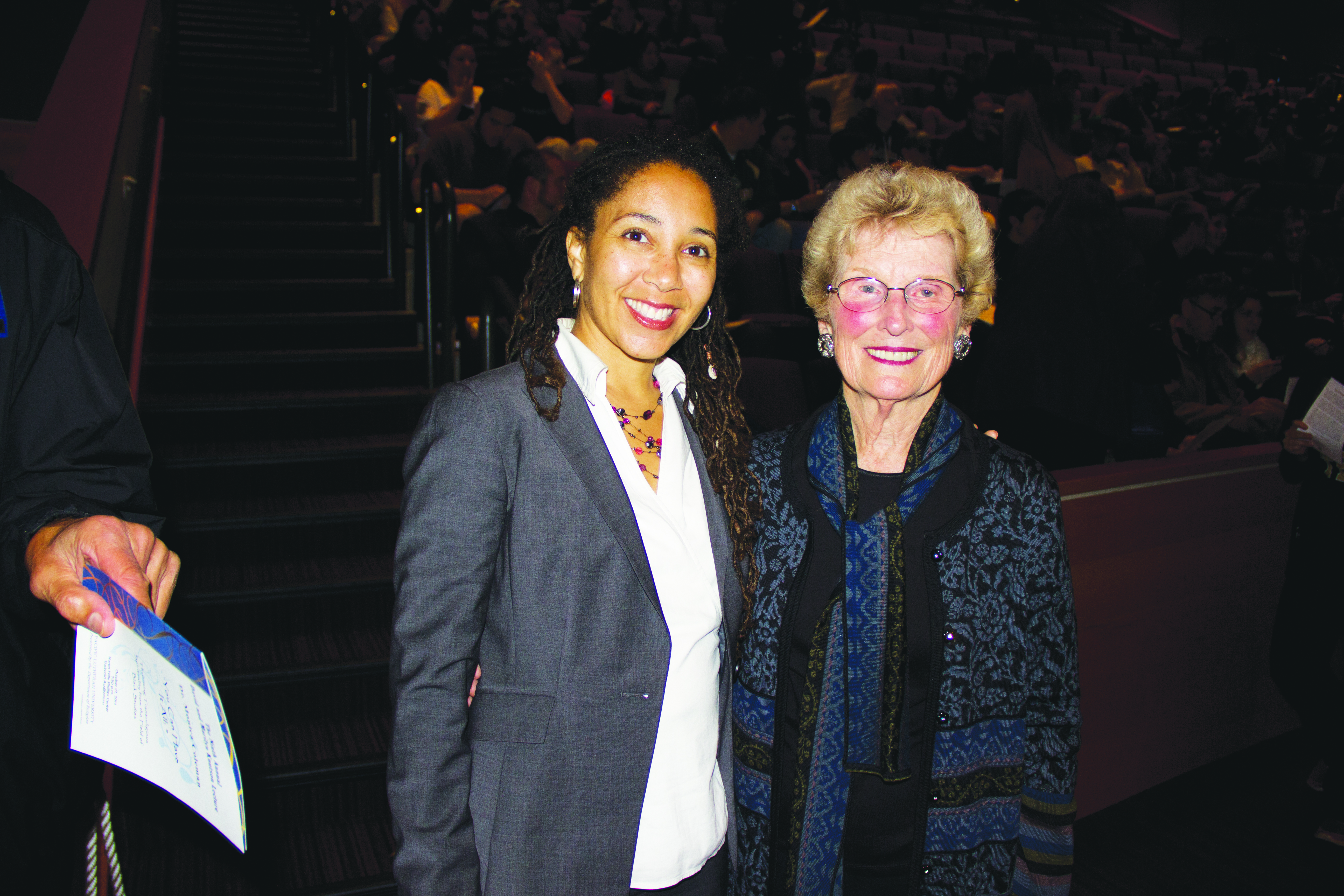BROOKE THAMES; Editor-in-Chief; thamesb@plu.edu
Editor’s Note: This story has been updated since its original print date, Feb. 23, 2018.
The initial news that the bi-annual production of “The Monologues” at Pacific Lutheran University had been canceled came via a Facebook post Feb. 14, just two days before the show’s first scheduled performance. The post was written by “Monologues” director and junior Elsa Kienberger, attributing the cancellation to a lack of “the inclusive and intersectional feminism that the Center for Gender Equity and the PLU campus community hopes to support.”
Show directors Kienberger, junior Zanthia Dwight and junior Lottie Duren posted a full-length letter addressed to the campus community Feb. 20. In the letter, the directors wrote that they endeavored to produce the 2018 “Monologues” with the hope of building upon previous efforts toward inclusivity.
“However such an endeavor takes an awareness of how we three, as white, cisgender women take up space to create an inclusive environment,” they wrote. “To various degrees and in varying manners, we failed to do this.”
The Feb. 14 announcement of the cancellation announcement came after a handful of “Monologues” participants dropped out of the production. Sophomore Dejan Perez, senior Hilary Vo and senior Tegan Mitchell were among those who departed. Continuing to move ahead with “The Monologues” in light of this, Kienberger wrote in the Feb. 14 post, “would do more harm on our campus than good.” The subsequent letter signed by all three directors gave insight into some of the reasons why.
“‘The Monologues’ is meant to be a production that amplifies marginalized voices,” the directors wrote in the Feb. 20 letter, “but our actions, or in some cases inaction, instead formed an exclusionary show that does not represent the intersectional feminism that the [CGE] and the PLU campus teach and promote.”
“The Vagina Monologues,” written by Eve Ensler and first produced in 1996, is a performance comprised of numerous vignettes about women’s gendered experiences. The original play approaches topics of sex, menstruation, female genitalia, sexism and gender-based violence in ways meant to empower and prompt conversation around women’s issues.
Producing the show has become a bi-annual tradition for PLU. Over the years, PLU’s CGE and directors of the show have worked to make strides in making the show more intersectional. In 2016, the word “Vagina” was dropped from the title, leaving “The Monologues” as the new official title for PLU’s version of the production.
The lack of intersectionality in this year’s “Monologues” presented issues for Vo, who left the production Feb. 9 after observing a lack of diversity and a general dysfunctionality within the fabric of the show. She said this year’s “Monologues” failed to create a sense of community among the performers, which she admired from her first experience acting in the 2014 “Vagina Monologues.” Vo said she was also disappointed with the lack of progression in the show’s reflection of intersections between race, gender and sexuality.
With the removal of the word “Vagina” from the title came a number of modifications to the show. Performers in the show were given the opportunity to write their own pieces about their personal experiences as women with multifaceted identities. There has also been a greater emphasis on incorporating trans women into the show, directly corresponding with the exclusion of the word “Vagina” from the title.
While I ended my participation with ‘The Monologues’ because of the nature of my position, the patterns of […] one director and the complacency of the others has been more than enough for me to fully support the director and cast members that chose to resign.
-Avé, Senior
“I was hoping with the exclusion of the ‘Vagina’ part of “The Monologues” [title] would be more intersectional. It would have a lot of different perspectives, but it didn’t,” Vo said. “It was still the same ‘Monologues’ we were doing my first year. So much has changed in the world, and especially at PLU, since then. It was kind of strange to see that.”
A perceived lack of cooperation between performers and directors also contributed to Vo’s departure from the show. She said she wished there would have been more conversation around which pieces actors would have liked to perform. The lack of dialogue, Vo said, detracted from the cooperative spirit she felt should have been strong throughout the process.
“Something that I observed was that they gave people pieces based on what the directors thought was best without any consultation with the individual who had to perform it,” Vo said. “When it’s something like ‘The Monologues,’ it’s such a team [effort] that having people assign roles didn’t fit with what we were trying to do.”
Senior Yadira Avendano, who goes by Avé, said she also observed issues stemming from lack of cooperation. Avendano served as a stand-in director for Duren, who studied away over J-term. While serving as a proxy, Avendano said she noted several instances when certain directors objected to performers’ requests and neglected to consider performer’s identities when assigning pieces.
“I made the choice to share my perspectives with the directors whenever I felt those core elements of ‘The Monologues’ were being overlooked. Which unfortunately, ended up happening numerous times,” Avendano said.
One instance concerned Vo, who petitioned to change her piece when assigned one she was uncomfortable performing. Avendano said one of the directors took it upon herself to reject Vo’s request without informing the rest of the directors. It wasn’t until Avendano intervened, Vo said, that she was offered the opportunity to select a new piece.
However, Vo still found herself disappointed by the two additional options presented to her, which she thought were still very narrow in focus.
I have only ever advocated for self-preservation throughout this entire experience and it has been nice to be validated by those closest in my heart.
-Dejan Perez, Sophomore
“They gave me two other options that were still very focused on vaginas. I didn’t see why all of them were focused on vaginas when we were trying to take vaginas out of ‘The Monologues,’” she said.
Avendano pointed to two other instances where a director seemed to disregard performers’ personal identities to ensure that an alternate identity was showcased. The directors in these cases, Avendano said, “[neglected] the performer for the exploitation of the piece for the show.”
“I was still an active director during those instances, and I, with the support of two other directors, strongly suggested that we reconsider the choices that had been made, and quickly asked the performers if they were comfortable with being assigned different pieces, which they accepted,” she said.
Avendano left the production Feb. 7.
In their joint letter, the directors acknowledged that they noticed tension stemming from the discomfort of performers of color.
“The space we took up as white women kept people of color in the show from being able to fully express themselves, and from feeling comfortable within the cast production team,” she wrote.
The directors also noted that they detected the unease, but overlooked it for the sake of pushing the show along.
“This act of omission: pushing the experience of a marginalized community aside so that we could continue with the project, was ignorant,” they wrote. “Not immediately acknowledging the tension and our role in creating an unsafe space further harmed the people of color involved with the production.”
Of the four official show directors, Perez served as the only person of color. She stepped down from her role as a director shortly before Vo also decided to depart. Perez spoke with Dean of Inclusive Excellence Jennifer Smith, CGE Director Talcott Broadhead and CGE Prevention and Outreach Coordinator Tolu Taiwo about her decision to leave the show.
“The experience has been very draining on my energy,” Perez said. “I have only ever advocated for self-preservation throughout this entire experience and it has been nice to be validated by those closest in my heart. I am slowly reclaiming what love and care I put into ‘The Monologues’ back to myself.”
Avendano said she observed numerous instances where Perez’s voice was overlooked during meetings and rehearsals. Avendano expressed support for Perez’s decision to leave the show, and the departure of other performers of color, based on the issues Avendano witnessed.
“While I ended my participation with ‘The Monologues’ because of the nature of my position, the patterns of […] one director and the complacency of the others has been more than enough for me to fully support the director and cast members that chose to resign,” Avendano said.
Following Perez’s departure, Kienberger, Dwight and Duren remained on. Smith and Broadhead met with the three remaining directors Monday Feb. 12. The Facebook event for “The Monologues” was cancelled a few days later.
It would have looked bad on PLU to have it continue in the way that it was. It just wasn’t representative of what PLU values.
-Hilary Vo, Senior
In her post, Kienberger offered an apology on behalf of all three directors for “inconveniences this has caused, but more so the damage done through the environment we cultivated.”
The letter signed by all three directors also acknowledged the duty the directors had to ensure a safe space for all involved.
“No matter the personality type, as white-cisgender women, we each have the ability and the responsibility to check each others’privlege, as well as our own, at all times,” they wrote.
Vo said she was relieved when the show was put on hold.
“It would have looked bad on PLU to have it continue in the way that it was. It just wasn’t representative of what PLU values,” she said.
However, Vo said the issues with this year’s production — especially the departure of many performers of color — reveals a prominent gap between diversity and feminism on PLU’s campus.
“A lot of what I felt was that there’s really radical, intersectional social justice conversations that happen, and then there’s feminism. Those two have touched bubbles, but they haven’t quite overlapped yet,” she said. “I think feminism at PLU is still very focused on white women. I think there’s a lot more work that needs to happen before feminism can be fully intersectional and fully inclusive at PLU.”
For Vo, intersectionality means being consciously aware of the various identities women hold and how those identities relate to each other. She said “‘The Monologues’ would do well to step away from vagina-centric pieces and include more written works by performers of color and queer people narrating their complex experiences.
Intersectionality in PLU feminism, Vo said, requires a more intentional merging of conversations concerning race, sexuality and gender in public spaces. She pointed to Feminist Student Union as a place to start.
“Having D-Center conversations in FSU meetings, and having people of color actually speaking to their experience as women of color or gender nonconforming folk in those spaces in really important,” Vo said. “There’s obviously some of that, but there needs to be more cross connection.”
Click here to read: “The Monologues” Open Letter




















